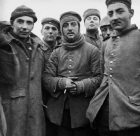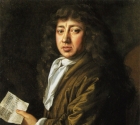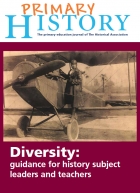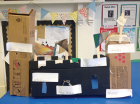General
Foundation Stage planning is a very different approach to Key Stage 1 or 2. Children in Nursery and Reception classes often have ‘continuous provision” - a variety of activities which children are free to move around among and choose for themselves. Sometimes activities will be provided where the teacher or classroom support works with all the children at different points during the week. Read more
Sort by:
Date (Newest first) | Title A-Z
Show:
All |
Articles |
Podcasts |
Multipage Articles
-

History in the early years
ArticleClick to view -

History, artefacts and storytelling in the 2011 primary curriculum
ArticleClick to view -

How to incorporate EYFS as a subject leader
ArticleClick to view -

Ideas for Assemblies: Lest we forget
ArticleClick to view -

Implementing the 2014 curriculum in Year 2
ArticleClick to view -

In my view: We must support gifted historians from an early age
ArticleClick to view -

Including the Muslim Contribution in the National Curriculum for History
ArticleClick to view -

Issues relating to the youngest children
ArticleClick to view -

KS1: Teaching about significant individuals
ArticleClick to view -

Oral history, a powerful tool or a double edged sword?
ArticleClick to view -

Primary History Summer Resource 2019: Diversity
ArticleClick to view -

Primary History at Key Stage 1
ArticleClick to view -

Primary history and British values
ArticleClick to view -

Primary pedagogy: Lessons from Early Years and Primary ITT Students
ArticleClick to view -

Processes, Chronological Understanding & Planning
ArticleClick to view -

Progression and coherence in history
ArticleClick to view -

Promoting play in the classroom; children as curators in a classroom museum
ArticleClick to view -

Pupil voice: Democratising history lessons in Key Stage 1
ArticleClick to view -

Pupils as apprentice historians (3)
ArticleClick to view -

Role play and the past
ArticleClick to view

